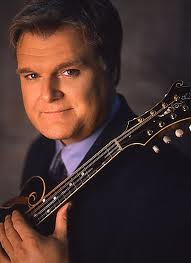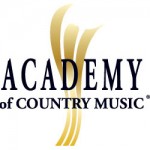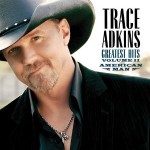
Keith Whitley


100 Greatest Men: #36. Ricky Skaggs
 100 Greatest Men: The Complete List
100 Greatest Men: The Complete List
A brilliant bluegrass musician that became the unlikeliest of superstars, Ricky Skaggs moved seamlessly into mainstream country music and popularized bluegrass among a wide and willing audience.

100 Greatest Men: #52. Keith Whitley
 100 Greatest Men: The Complete List
100 Greatest Men: The Complete List
Some of the greatest artists in country music left the scene just as they reached staggering artistic heights, leaving fans to forever wonder what might have been.


400 Greatest Singles of the Nineties: #200-#176
The hits come from all over the place here. Breakthrough hits from Trace Adkins and Carlene Carter join one-hit wonders Brother Phelps and George Ducas. And alongside crafty covers of songs by sixties rock band The Searchers and nineties country artist Joy Lynn White, you can also find tracks from three diamond-selling country albums.


ACM Flashback: Single Record of the Year
 As with the similar CMA category of Single of the Year, looking over the history of this category is the quickest way to get a snapshot of country music in a given year. There is a quite a bt of consensus among the two organizations here, and it is very rare for the winner at one show to not at least be nominated at the other. The winners list here would make a great 2-disc set of country classics, at least for those who don’t mind a little pop in their country. The ACM definitely has more of a taste for crossover than its CMA counterpart, and the organizations have only agreed on 17 singles in the past four decades and change.
As with the similar CMA category of Single of the Year, looking over the history of this category is the quickest way to get a snapshot of country music in a given year. There is a quite a bt of consensus among the two organizations here, and it is very rare for the winner at one show to not at least be nominated at the other. The winners list here would make a great 2-disc set of country classics, at least for those who don’t mind a little pop in their country. The ACM definitely has more of a taste for crossover than its CMA counterpart, and the organizations have only agreed on 17 singles in the past four decades and change.
As always, we start with a look at this year’s nominees and work our way back to 1968.
2010
- Zac Brown Band, “Toes”
- Billy Currington, “People Are Crazy”
- Lady Antebellum, “Need You Now”
- Miranda Lambert, “White Liar”
- David Nail, “Red Light”
There’s usually a “Huh?” nominee among the ACM list in recent years. This year, it’s David Nail. Good for him! Currington hasn’t won yet for this hit, even though he got himself a Grammy nomination for it. With Lady Antebellum reaching the upper ranks of the country and pop charts with “Need You Now”, my guess is that they’re the presumptive favorites. Then again, Miranda Lambert is a nominee for the third straight year, and she’s up for her biggest radio hit.
2009
- Trace Adkins, “You’re Gonna Miss This”
- Jamey Johnson, “In Color”
- Miranda Lambert, “Gunpowder & Lead”
- Heidi Newfield, “Johnny and June”
- Brad Paisley, “Waitin’ On a Woman”
Adkins has been a fairly regular fixture on country radio since 1996, but this was his first major industry award. He also won the ACM for Top New Male Vocalist in 1997.

Lorrie Morgan Starter Kit
 Amidst her generation of successful female country artists, Lorrie Morgan was the only one who was clearly from the tradition of heartbreak queen Tammy Wynette, with a healthy dose of Jeannie Seely in the mix. With her contemporaries far more shaped by the work of Linda Ronstadt and Emmylou Harris, Morgan was instrumental in keeping the sound of female country from the sixties still relevant in the nineties.
Amidst her generation of successful female country artists, Lorrie Morgan was the only one who was clearly from the tradition of heartbreak queen Tammy Wynette, with a healthy dose of Jeannie Seely in the mix. With her contemporaries far more shaped by the work of Linda Ronstadt and Emmylou Harris, Morgan was instrumental in keeping the sound of female country from the sixties still relevant in the nineties.
While Morgan never earned the critical acclaim or industry accolades of peers like Patty Loveless and Pam Tillis, she was immensely popular with country fans, able to sell gold with albums that radio largely ignored. She was the first female country artist to have her first three studio albums go platinum, with three additional albums going gold and a hits collection selling double platinum.
Many of Morgan’s best recordings were never sent to radio, and those interested in discovering her in depth should seek out her finest studio albums, Greater Need and Show Me How.
But her singles were pretty good too, with these being the most essential.
Ten Essential Tracks:
“Dear Me”
from the 1989 album Leave the Light On
This song broke through just as news of the death of Keith Whitley, Morgan’s husband, became known. She was unfairly accused of capitalizing on his death with this release, as people both misinterpreted the song’s meaning and apparently ignored the fact that it had gone to radio weeks before his death.

Mark Chesnutt, “She Never Got Me Over You”
Co-written but never released by the late Keith Whitley, “She Never Got Me Over You” is a tasteful, timeless slice of classic country. Chesnutt delivers a solid performance of the bare-bones ballad, effortlessly inhabiting the heartache as he sings of a broken relationship that he can’t seem to shake:
She almost had me where you have me
She almost did what you still do
She got me thinking straight again
But I don’t think she understands
She never got me over you.
It’s the purest form of country music – the kind of country ballad that moves the soul with untainted emotion and a simple, stirring melody. It’s also the kind of unassuming song that stands little chance of success in today’s mainstream country market, which is quite a shame, as “She Never Got Me Over You” is not only a breath of fresh air, but a beautiful tribute to Whitley.

Traditional Country is a Link in a Long Chain
The following is a guest contribution from Scott O’Brien.
“But someone killed tradition. And for that someone should hang.” –Larry Cordle & Larry Shell, “Murder on Music Row”
Dan Milliken’s recent post got me thinking: The country music I grew up with is nothing like the music on country radio today. If I turned on today’s country radio in 1988, I might not realize it was a country station and keep right on flipping. Back then, Randy Travis and Keith Whitley’s traditional twang ruled the airwaves. Today, they are dominated by the giggly teeny-bopper ditties of Taylor Swift and the boy band sounds of Rascal Flatts. Did they get away with murder on music row? Well, let’s start by briefly uncovering country’s traditional roots.
What is traditional country music? Is it simply anything from the past? That seems too broad; Shania Twain wasn’t traditional. Anything before 1990? Maybe, but that is still a rather wide net. To me, traditional country music is honky-tonk music. It heavily employs steel guitars, fiddles, and forlorn vocals. It moves at a slow pace. There are no drums or electric guitars. The songs typically deal with heavy topics such as heartbreak, cheating, or drinking, with a ballad here and there. In most cases, the goal is to induce pain. Not bad pain, but the therapeutic empathy that tugs your heart and helps you through your personal struggles. The patron saint of traditional country is Hank Williams. Hank’s first disciple is George Jones. Jones’ first disciple is Alan Jackson. The traditional template is supposed to help us decipher what is country and what is not. After all, what makes country music country if not fiddles and cheatin’ songs?

